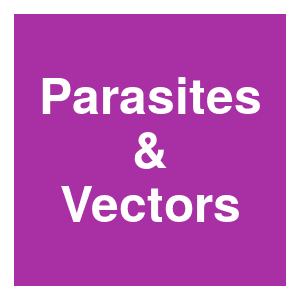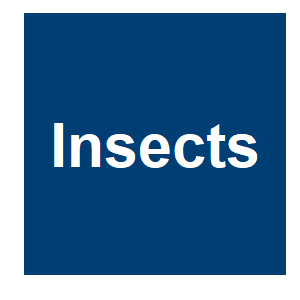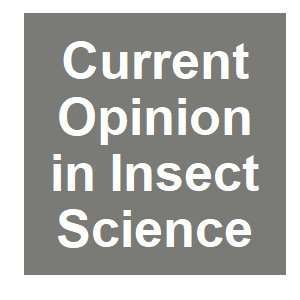
Keywords: arabiensis

|
Life-history traits of a fluorescent Anopheles arabiensis genetic sexing strain introgressed into South African genomic backgroundN. L. Ntoyi, T. Mashatola, J. Bouyer, C. Kraupa, H. Maiga, W. Mamai, N. S. Bimbile-Somda, T. Wallner, D. O. Carvalho, G. Munhenga and H. Yamada, Malaria Journal, 21:12. 2022.
Background South Africa has set a mandate to eliminate local malaria transmission by 2023. In pursuit of this objective a Sterile Insect Technique programme targeting the main vector Anopheles arabiensis is currently under development. Significant progress has been made towards ... Keywords: Aedes, aegypti, albopictus, Anopheles, arabiensis, mosquitoes, SIT, sterile insect technique |

|
Three Decades of Malaria Vector Control in Sudan: The Plausible Role of Sterile Insect Technique (SIT)A. Elaagip and A. Adedapo, Genetically Modified and other Innovative Vector Control Technologies, 2021.
In Northern State, Sudan, a feasibility study for sterile insect technique (SIT) in an area-wide integrated pest management was established for the first time in an African country. The aim of the study was to see whether it is feasible, from a technical, an economical and a ... Keywords: Aedes, aegypti, albopictus, Anopheles, arabiensis, mosquitoes, SIT, sterile insect technique |

|
The Complex Lives of Mosquitoes: The Key for Malaria ControlF. Okumu, ISGlobal, 2021.
Mosquitoes spread diseases to millions of people around the world, yet they remain poorly understood by most. Studying their biology and behaviours can help us combat, and eventually eliminate, dangerous diseases such as malaria and dengue fever.There are nearly 3,500 species of ... Keywords: Aedes, aegypti, albopictus, Anopheles, arabiensis, mosquitoes, SIT, sterile insect technique |

|
“Maskandi experience”: exploring the use of a cultural song for community engagement in preparation for a pilot Sterile Insect Technique release programme for malaria vector control in KwaZulu-Natal Province, South Africa 2019P. N. Manana, S. Jewett, J. Zikhali, D. Dlamini, N. Mabaso, Z. Mlambo, R. Ngobese and G. Munhenga, Malaria Journal, 20:11. 2021.
Background An assessment of the Sterile Insect Technique (SIT) as a complementary malaria vector control tool, is at an advanced stage in South Africa. The technique involves the release of laboratory-reared sterilized male mosquitoes of the major malaria vector Anopheles ... Keywords: Aedes, aegypti, albopictus, Anopheles, arabiensis, mosquitoes, SIT, sterile insect technique |

|
Estimates of the population size and dispersal range of Anopheles arabiensis in Northern KwaZulu-Natal, South Africa: implications for a planned pilot programme to release sterile male mosquitoesM. L. Kaiser, O. R. Wood, D. Damiens, B. D. Brooke, L. L. Koekemoer and G. Munhenga, Parasites and Vectors, 14:18. 2021.
The Anopheles gambiae complex and An. funestus group species made up the majority of wild collections along with other anophelines. The An. arabiensis population size was estimated to be between 550 and 9500 males per hectare depending on time of year, weather conditions and ... Keywords: Aedes, aegypti, albopictus, Anopheles, arabiensis, mosquitoes, SIT, sterile insect technique |

|
Assessment of a Novel Adult Mass-Rearing Cage for Aedes albopictus (Skuse) and Anopheles arabiensis (Patton).H. Maïga, W. Mamai, N. S. Bimbilé Somda, T. Wallner, B. S. Poda, G. Salvador-Herranz, R. Argiles-Herrero, H. Yamada and J. Bouyer, Insects, 11:801. 2020.
Successful implementation of the sterile insect technique (SIT) against Aedes albopictus and Anopheles arabiensis relies on a continuous supply of sterile males. To meet this requirement, optimization of the mass-rearing techniques is needed. This study, therefore, aims to assess ... Keywords: Aedes, aegypti, albopictus, Anopheles, arabiensis, mosquitoes, SIT, sterile insect technique |

|
Community Engagement Prior to a Small-Scale Pilot of the Sterile Insect Technique in Kwazulu-Natal, South Africa 2018P. N. Manana, J. Zikhali, D. Dlamini, S. Gumede, N. Mabaso, T. Mpungose and G. Munhenga, Journal of Public Health and Disease Prevention, 2. 2019.
Approximately 165 000 listeners were engaged during two 30 minute radio interviews at a local radio station. Two hundred and fifty farm workers, several outpatients from primary health care facilities and 1400 secondary school pupils were given education on malaria transmission ... Keywords: Aedes, aegypti, albopictus, Anopheles, arabiensis, mosquitoes, SIT, sterile insect technique |

|
Sterile insect technique field trials to eliminate malaria under wayAnonymous, SA Department of Science and Innovation, 2018.
The first South African research trial for the biological control of mosquitoes using the sterile insect technique started in Jozini in KwaZulu-Natal earlier this month, with funding from the Department of Science and Technology. South Africa is making significant progress in ... Keywords: Aedes, aegypti, albopictus, Anopheles, arabiensis, mosquitoes, SIT, sterile insect technique |

|
Mating competitiveness of sterile genetic sexing strain males (GAMA) under laboratory and semi-field conditions: Steps towards the use of the Sterile Insect Technique to control the major malaria vector Anopheles arabiensis in South AfricaG. Munhenga, B. D. Brooke, J. R. L. Gilles, K. Slabbert, A. Kemp, L. C. Dandalo, O. R. Wood, L. N. Lobb, D. Govender, M. Renke and L. L. Koekemoer, Parasites and Vectors, 9:122. 2016.
Anopheles arabiensis Patton is primarily responsible for malaria transmission in South Africa after successful suppression of other major vector species using indoor spraying of residual insecticides. Control of An. arabiensis using current insecticide based approaches is proving ... Keywords: Aedes, aegypti, albopictus, Anopheles, arabiensis, mosquitoes, SIT, sterile insect technique |

|
Back to the future: the sterile insect technique against mosquito disease vectorsR. S. Lees, J. R. L. Gilles, J. Hendrichs, M. J. B. Vreysen and K. Bourtzis, Current Opinion in Insect Science, 10:156-162. 2015.
With the global burden of mosquito-borne diseases increasing, and some conventional vector control tools losing effectiveness, the sterile insect technique (SIT) is a potential new tool in the arsenal. Equipment and protocols have been developed and validated for efficient ... Keywords: Aedes, aegypti, albopictus, Anopheles, arabiensis, mosquitoes, SIT, sterile insect technique |

|
Swarming and mating behavior of male Anopheles arabiensis Patton (Diptera: Culicidae) in an area of the Sterile Insect Technique Project in Dongola, northern SudanM. M. Hassan, H. M. Zain, M. A. Basheer, H. E. F. Elhaj and B. B. El-Sayed, Acta Tropica, 132:S64-S69. 2013.
The problems facing the conventional mosquito control methods including resistance to insecticides have led to the development of alternative methods such as the Sterile Insect Technique (SIT) to suppress populations of the malaria vector Anopheles arabiensis in northern Sudan. ... Keywords: Aedes, aegypti, albopictus, Anopheles, arabiensis, mosquitoes, SIT, sterile insect technique |

|
Evaluating the potential of the sterile insect technique for malaria control: relative fitness and mating compatibility between laboratory colonized and a wild population of Anopheles arabiensis from the Kruger National Park, South AfricaG. Munhenga, B. D. Brooke, T. F. Chirwa, R. H. Hunt, M. Coetzee, D. Govender and L. L. Koekemoer, Parasites and Vectors, 4:208. 2011.
The successful suppression of a target insect population using the sterile insect technique (SIT) partly depends on the premise that the laboratory insects used for mass rearing are genetically compatible with the target population, that the mating competitiveness of laboratory ... Keywords: Aedes, aegypti, albopictus, Anopheles, arabiensis, mosquitoes, SIT, sterile insect technique |

|
Ethical, legal and social aspects of the approach in SudanB. B. El Sayed, C. A. Malcolm, A. Babiker, E. M. Malik, M. A. H. El Tayeb, N. S. Saeed, A. H. D. Nugud and B. G. J. Knols, Malaria Journal, 8:S3. 2009.
The global malaria situation, especially in Africa, and the problems frequently encountered in chemical control of vectors such as insecticide resistance, emphasize the urgency of research, development and implementation of new vector control technologies that are applicable at ... Keywords: Aedes, aegypti, albopictus, Anopheles, arabiensis, mosquitoes, SIT, sterile insect technique |

|
Field site selection: getting it right first time aroundC. A. Malcolm, B. El Sayed, A. Babiker, R. Girod, D. Fontenille, B. G. J. Knols, A. H. Nugud and M. Q. Benedict, Malaria Journal, 8. 2009.
The selection of suitable field sites for integrated control of Anopheles mosquitoes using the sterile insect technique (SIT) requires consideration of the full gamut of factors facing most proposed control strategies, but four criteria identify an ideal site: 1) a single malaria ... Keywords: Aedes, aegypti, albopictus, Anopheles, arabiensis, mosquitoes, SIT, sterile insect technique |

|
Spatial and temporal distribution of the malaria mosquito Anopheles arabiensis in northern Sudan: influence of environmental factors and implications for vector controlT. B. Ageep, J. Cox, M. M. Hassan, B. G. J. Knols, M. Q. Benedict, C. A. Malcolm, A. Babiker and B. B. El Sayed, Malaria Journal, 8:14. 2009.
Background: Malaria is an important public health problem in northern Sudan, but little is known about the dynamics of its transmission. Given the characteristic low densities of Anopheles arabiensis and the difficult terrain in this area, future vector control strategies are ... Keywords: Aedes, aegypti, albopictus, Anopheles, arabiensis, mosquitoes, SIT, sterile insect technique |

|
Towards a sterile insect technique field release of Anopheles arabiensis mosquitoes in Sudan: Irradiation, transportation, and field cage experimentationM. E. H. Helinski, M. M. Hassan, W. M. El-Motasim, C. A. Malcolm, B. G. J. Knols and B. El-Sayed, Malaria Journal, 7:10. 2008.
Background: The work described in this article forms part of a study to suppress a population of the malaria vector Anopheles arabiensis in Northern State, Sudan, with the Sterile Insect Technique. No data have previously been collected on the irradiation and transportation of ... Keywords: Aedes, aegypti, albopictus, Anopheles, arabiensis, mosquitoes, SIT, sterile insect technique |

|
First Anopheles arabiensis germline transformation: Toward the development of a transgenic genetic sexing strainH. C. Bossin, J. Thailayil, F. Catteruccia, J. P. Benton, A. Crisanti, M. Q. Benedict, B. G. Knols and A. S. Robinson, American Journal of Tropical Medicine and Hygiene, 75:66-66. 2006.
The ability to genetically engineer mosquitoes is likely to have major implications for the development and implementation of genetic control systems against mosquito disease vectors such as the Sterile Insect Technique (SIT). In particular, genetically transformed mosquito ... Keywords: Aedes, aegypti, albopictus, Anopheles, arabiensis, mosquitoes, SIT, sterile insect technique |

|
The Sterile Insect Technique: can established technology beat malaria?M. E. H. Helinski, B. El-Sayed and B. G. J. Knols, Entomologische Berichten, 66:13-20. 2006.
The Sterile Insect Technique (SIT) is the mass production, sterilisation and subsequent release of sterile insects into a target population in an area-wide integrated approach. The released sterile males mate with wild females; they thus no longer produce offspring and therefore ... Keywords: Aedes, aegypti, albopictus, Anopheles, arabiensis, mosquitoes, SIT, sterile insect technique |

|
Radiation-induced sterility for pupal and adult stages of the malaria mosquito Anopheles arabiensisM. E. H. Helinski, A. G. Parker and B. G. J. Knols, Malaria Journal, 5:10. 2006.
The optimal dose for male insects to be released in an SIT programme depends on their level of sterility and competitiveness. The use of semi-sterilizing doses to produce more competitive insects is discussed. The most convenient developmental stage for mosquito irradiation on a ... Keywords: Aedes, aegypti, albopictus, Anopheles, arabiensis, mosquitoes, SIT, sterile insect technique |

Contact
David O’Brochta
Foundation for the
National Institutes of Health
geneconvenevi@fnih.org
RSS

